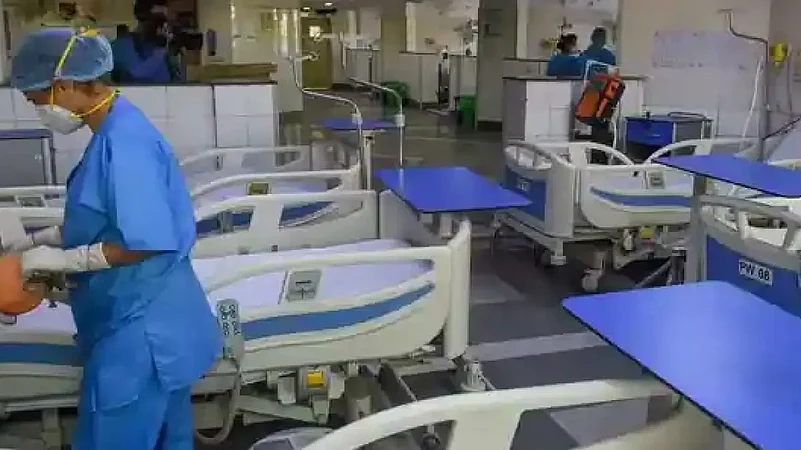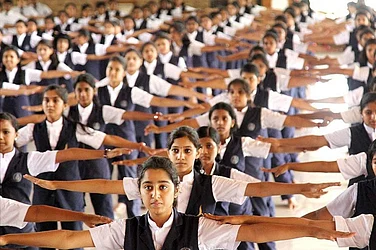In the wake of a significant surge in H3N2 influenza cases in the capital city, Delhi's Lok Nayak Jai Prakash Narayan (LNJP) Hospital has set up an isolation ward with 20 beds for infected patients, the hospital's Medical Director Dr Suresh Kumar told reporters.
Dr. Kumar also added that a 15-doctor team has been deployed which is doing round-the-clock duty.
"In this, antibiotics have no role. It's a viral disease," he further said.
Delhi hospitals are witnessing a spike in cases of H3N2 virus that triggers symptoms like fever, cold and body aches, but in certain cases, leaves behind persistent cough making patients extremely weak, doctors said.
There has been a nearly 150 per cent rise in patients coming to OPDs with such complaints, they said.
What are the doctors/experts saying?
Elaborating about the possible reasons behind the surge, Dr Viny Kantroo, Consultant, Respiratory, Critical Care and Sleep Medicine Consultant, Indraprastha Apollo Hospitals, said the outbreak could have been triggered due to seasonal change, mutation of virus and the economy being fully open.
"Children are going to school and they are transmitting it to the elderly. A lot of cross-country travel is happening. In the last two years, Covid was the dominant virus and there were restrictions but with relaxation of norms and return of normalcy, these outbreaks are being observed," she opined.
Dr Rajiva Gupta, Senior Consultant - Internal medicine at the CK Birla Hospital, Gurugram and Delhi, said the ILI (Influenza like illness) cases have seen a spike in the last few days.
"For instance, if we were seeing two to three patients in OPDs last month, this month there is one-and-a-half times rise. The symptoms are fever, discomfort, cold, body aches. In some cases, patients also experienc abdominal discomfort, diarrhoea, and even fullness in ears," he added.
The senior doctor said the treatment approach changes lightly when the patient has comorbidities and stressed that in those cases, they ask the family members to monitor the BP, pulse, oxygen saturation levels and consciousness levels.
"If these levels fluctuate, the patient needs hospitalisation," he stressed.
Explaining about the current strain, Dr Vikas Deswal, Senior Consultant, Internal Medicine, Medanta, Gurugram said the influenza virus is the most prevalent virus that affects our respiratory system, and is present in three different types: A, B, and C.
"Among these, subtype A is the most commonly found. One subtype of the influenza A virus is H3N2, which produces symptoms similar to other flu viruses such as cough, fever, cold, sore throat, fatigue, muscle pain, and respiratory complications, especially in children under two years, the elderly, and those with other medical conditions," he said.
Both the doctors said in some cases, it has been observed that patients have persistent cough even after the fever subsides.
"One of my patients said he was having persistent cough and could not attend meetings because of it. Patients also develop extreme weakness due to it," said Gupta.
Deswal cautioned against letting down guard at this time and said since viruses mutate over time, so it is important to take precautions.
"Antibiotics are not effective in treating viral infections such as H3N2 and can be harmful, so people should avoid taking them, especially if they have H3N2.
"The virus spreads through droplets and direct contact, so it is recommended to follow precautions such as avoid touching surfaces, wash hands, follow Covid-appropriate behaviour, practice social distancing, wear masks, and avoid going out if experiencing viral symptoms.
Additionally, it is important for people to get vaccinated against influenza every year," he said.
(With PTI Inputs)


























